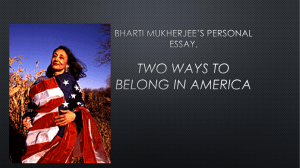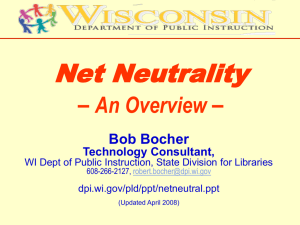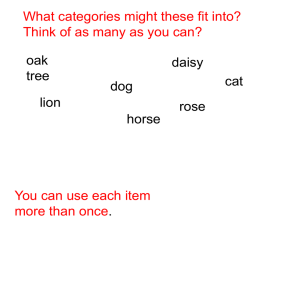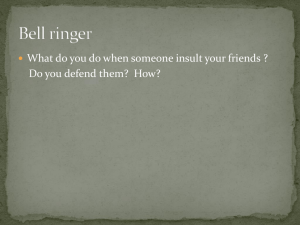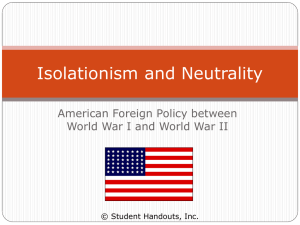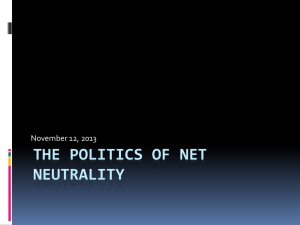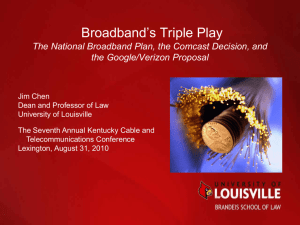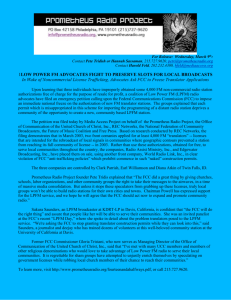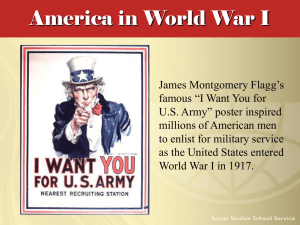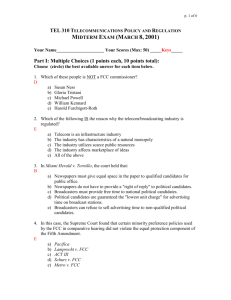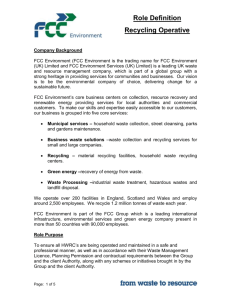RichardAnderson-hw1b
advertisement
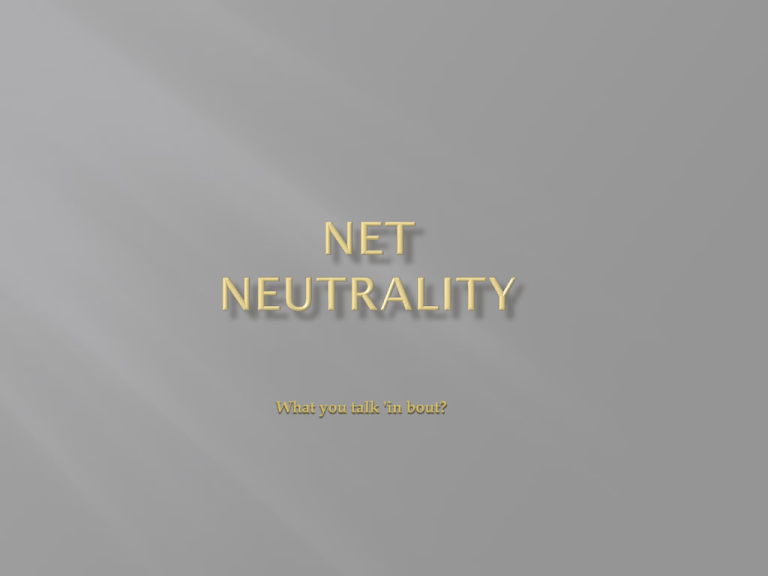
What you talk 'in bout? For instance, AT&T decided to get into the Radio business in 1922. They used the station WEAF and its affiliates as an experimental platform to test new products it was developing. It developed an early networking scheme where several of it’s stations could share programming between each other over the telephone lines. RCA, which also owned several radio stations wanted to do the same thing but had to lease telegraph lines from Western Union because AT&T would not let anyone else use their telephone lines. AT&T decided to get out of the radio business and sold their stations to RCA with the rights to use AT&T’s telephone lines for $1 million. RCA consolidated all of their station’s into one large network which became NBC on November 15, 1926. Because telephone and the telephone network became a became a national monopoly, the phone lines should remain a neutral entity which are available for everyone. Many other utilities fall into this same category such as Gas Electric companies Internet User’s should have unrestricted access to the best Internet content and services Net Neutrality is the guiding principle that preserves the free and open Internet. It guarantees a level playing field for all Web sites and Internet technologies. Net Neutrality means no discrimination. Net Neutrality prevents Internet providers from blocking, speeding up or slowing down Web content based on its source, ownership or destination. Internet access is becoming so necessary in people’s everyday lives that it should be considered a utility just like water and sewer. Many internet application companies support net neutrality such as Yahoo!, Vonage, Ebay, Amazon and Microsoft Individuals who support net neutrality Tim Berners-Lee - a British engineer, computer scientist and MIT professor credited with inventing the World Wide Web. Vinton Cerf - an American computer scientist who is recognized as one of the fathers of the internet, sharing this title with American computer scientist Bob Kahn. Lawrence Lessig- an American academic and political activist best known as a proponent of reduced legal restrictions on copyright, trademark, and radio frequency spectrum. Steve Wozniak – an American computer engineer who co-founded Apple Computer, Inc. President Barack Obama – President of the United States. Internet Providers want to control how much you will pay, how fast your connection will work, even what you’ll be able to do on the internet. Verizon, Google and AT&T want to be able to prioritize different data streams and charge different rates for different services. Big providers want the same rules that apply to Wireline services also apply to Wireless services. Can the Big providers be trusted to provide fair service to everyone or will it just be a matter of how much money they can make? The FCC (Federal Communications Commission) thinks they should write and enforce rules about how the Internet should work. The Federal Courts say the FCC has no legal basis for regulating the Internet. Comcast was accused by the FCC of illegally restricting competitive content but when the FCC tried to penalize the company, the Federal Court stepped in and told the FCC they didn’t the Authority. The FCC has been criticized for dealing with the big internet providers using them for ideas on how the internet should be controlled. The FCC says they are just looking for ideas from everyone. Congress recently tried to pass legislation to help protect the internet but the measure was killed in committee. Congressional sentiments tend to run along party lines. The Republicans are for Big Corporations and their ability to make money. The Democrats are for governmental rules and regulations to make sure the internet remains open. The Internet Engineering Task Force (IETF) is a large open international community of network designers, operators, vendors, and researchers concerned with the evolution of the Internet architecture and the smooth operation of the Internet. It is open to any interested individual. The IETF is a highly respected international group that tries to set policy governing the internet but doesn’t get involved in politics or law. http://news.cnet.com/8301-13578_3-20015498-38.html?tag=topTechContentWrap;editorPicks http://news.cnet.com/8301-13578_3-20015498-38.html?tag=topTechContentWrap;editorPicks#ixzz0yggux41h http://www.cioupdate.com/features/article.php/3901816/Net-Neutrality--Will-the-FCC-Get-It-Right.htm http://news.cnet.com/8301-30686_3-20015590-266.html?tag=mncol;2n http://www.zdnet.com/blog/government/net-neutrality-why-the-internet-will-never-be-free-for-anything-so-get-used-toit/5676?tag=content;search-results-rivers http://www.zdnet.com/blog/btl/fcc-seeks-comment-on-two-key-elements-of-google-verizon-net-neutralityproposal/38751?tag=content;search-results-rivers http://www.zdnet.com/blog/networking/british-telecomm-and-cisco-8217s-network-neutrality-fix/147?tag=must-read http://www.pcworld.com/article/202970/googleverizon_net_neutrality_pact_5_red_flags.html?tk=mod_rel http://www.pcworld.com/businesscenter/article/203452/net_neutrality_debate_divided_on_familiar_political_lines.html?tk=mod_rel http://www.savetheinternet.com/frequently-asked-questions?gclid=COT107XT3aQCFQgKKgodIXNpKA http://www.wired.com/thisdayintech/2010/09/0909rca-creates-nbc/
